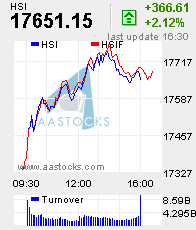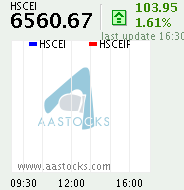"Price is determined by the cost" --- Logical fallacy
I usually buy pork from the supermarket without much attention to the meat price until I have learned from the recent reports that the price of pork has soared to a very high level throughout the cities in China.
However, the majority, including the high-ranking Chinese officials, unanimously think that the high meat price were due to the high raising cost of pigs. I never compromise with such argument. It is a logical fallacy. The right logic is just the reverse that the high meat price causes the increase in production cost.
The logical explanation is that the final price is determined by the market force. The high demand for and the short supply of pork causes the market price to soar. The demand for the corn-based feed of the pigs is the “derived demand”. The production of many kinds of food needs the corns. In this sense the demand for corns is derived from the demand for final foods. In fact, the main reason is the prevailing pig disease since last year that reduce the pig supply in addition to the low elasticity of supply and demand in terms of price of the meat. Inflationary spiral prevails in China that the general price level of the consumables increases continuously with the relative price of pork increases also.
The price of pork will be eased through the market mechanism. That is the farmers have the incentive to raise more pigs on one hand and the consumers eat less due to high price on the other. The market equilibrium would be achieved through the market choice in the absence of governmental intervention. Such pork price was once controlled by the Chinese Government in the last century in the 60’s and 70’s through the rationing. Meat coupons were invented at that time to solve the allocation problem. It was a painful memory or even a nightmare for the elderly.
It is also the Engel's Law inspiring me that the agricultural sector may be reduced gradually relative to industrial sector due to the effect of “urban magnet” when the economy has grown significantly. Engel's law is an empirical observation that as income increase the proportion of income consumed on food falls even if actual expenditure on food rises. The law is empirical that it can be verified by observation.
To address the problem, the right solution is let the invisible hand work, i.e. the market, to achieve its equilibrium. Market price does eventually depend on the market force but not the historical cost of production.
Also written in Chinese by tcwong at http://wongtc.blogspot.com/
However, the majority, including the high-ranking Chinese officials, unanimously think that the high meat price were due to the high raising cost of pigs. I never compromise with such argument. It is a logical fallacy. The right logic is just the reverse that the high meat price causes the increase in production cost.
The logical explanation is that the final price is determined by the market force. The high demand for and the short supply of pork causes the market price to soar. The demand for the corn-based feed of the pigs is the “derived demand”. The production of many kinds of food needs the corns. In this sense the demand for corns is derived from the demand for final foods. In fact, the main reason is the prevailing pig disease since last year that reduce the pig supply in addition to the low elasticity of supply and demand in terms of price of the meat. Inflationary spiral prevails in China that the general price level of the consumables increases continuously with the relative price of pork increases also.
The price of pork will be eased through the market mechanism. That is the farmers have the incentive to raise more pigs on one hand and the consumers eat less due to high price on the other. The market equilibrium would be achieved through the market choice in the absence of governmental intervention. Such pork price was once controlled by the Chinese Government in the last century in the 60’s and 70’s through the rationing. Meat coupons were invented at that time to solve the allocation problem. It was a painful memory or even a nightmare for the elderly.
It is also the Engel's Law inspiring me that the agricultural sector may be reduced gradually relative to industrial sector due to the effect of “urban magnet” when the economy has grown significantly. Engel's law is an empirical observation that as income increase the proportion of income consumed on food falls even if actual expenditure on food rises. The law is empirical that it can be verified by observation.
To address the problem, the right solution is let the invisible hand work, i.e. the market, to achieve its equilibrium. Market price does eventually depend on the market force but not the historical cost of production.
Also written in Chinese by tcwong at http://wongtc.blogspot.com/












0 Comments:
發佈留言
<< Home